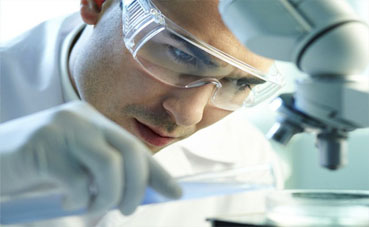Main menu:
| NEWS | ||
| __________________________________________________________________________________________________________________________ | ||
 | Cervical cancer is the third most frequent among women in Latin America and the Caribbean, but it can be prevented Washington, DC, February 1, 2019 (PAHO) - In the framework of World Cancer Day, which takes place on February 4, the Pan American Health Organization (PAHO) urges to accelerate prevention and control efforts to create a future without cervical cancer, the third most frequent among women in Latin America and the Caribbean, but one of those that can be prevented. To raise awareness among the population about the disease, PAHO launched last November the campaign "It is time to end cervical cancer". Under the slogan "Let nothing stop you", the initiative promotes information about the HPV vaccine and encourages women to have periodic exams to detect precancerous lesions. The campaign responds to the plan agreed in 2018 at PAHO by the Ministers of Health of the continent to reduce by one third new cases and deaths from cervical cancer by 2030. | |
__________________________________________________________________________________________________________________________ | ||
 | Resistance to antimicrobials: from political commitment to national action. Antimicrobial resistance is currently one of the most complex global health challenges. The world has long ignored the warnings of the loss of efficacy of some antibiotics after decades of excessive and undue use in human medicine, veterinary medicine and agriculture. Frequent diseases such as bacterial pneumonia, postoperative infections, some cancers, as well as The most deadly infectious diseases - tuberculosis, human immunodeficiency virus (HIV) infection and malaria - are increasingly difficult to treat due to drug resistance and its spread. The worsening of antimicrobial resistance could have serious social, economic and public health consequences throughout the world. The World Bank has warned that antimicrobial resistance could be as damaging to the global economy as the financial crisis of 2008. | |
__________________________________________________________________________________________________________________________ | ||
 | Greater physical activity associated with lower risk of 13 types of cancer A new study of the relationship between physical activity and cancer has shown that greater degrees of physical activity in leisure time were associated with a lower risk of suffering from 13 different types of cancer. The risk of suffering seven types of cancer was 20% (or more) lower among the most active participants (90 percentile of activity) compared to the least active participants (10 percentile of activity). These results, from researchers at the National Cancer Institute (NCI), part of the National Institutes of Health, and the American Cancer Society, confirm and extend evidence of a benefit of physical activity in cancer risk and they support its role as a key component of cancer prevention and control programs for the entire population. The study, by Dr. Steven C. Moore of the NCI, and colleagues, appeared on May 16, 2016, in Jama Internal Medicine. | |
__________________________________________________________________________________________________________________________ | ||
 | Ingesting very hot drinks "probably" causes cancer, according to WHO Very hot beverages "probably" cause cancer of the esophagus, as announced today by the International Agency for Research on Cancer (IARC, in English), which is part of the health agency of the United Nations, WHO. IARC had planned to present the results of its report today at three in the afternoon in Paris, but the results of the work have been leaked to several information agencies. "These results suggest that ingesting very hot beverages may be a cause of esophageal cancer and it is the temperature, rather than the beverage itself, that appears to be responsible," Christopher Wild, director of IARC, told AFP. . The WHO has reviewed more than a thousand scientific studies on the possibility that coffee and mate cause cancer. Both substances have been classified as "possibly carcinogenic to humans" since 1991, when the last assessment was made. | |